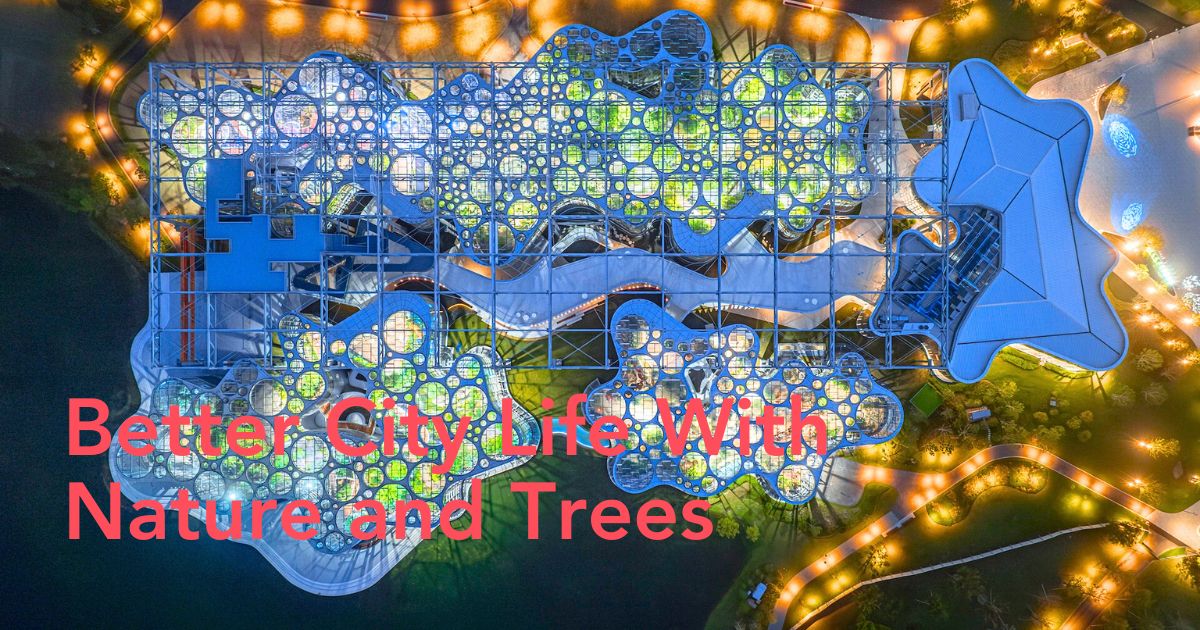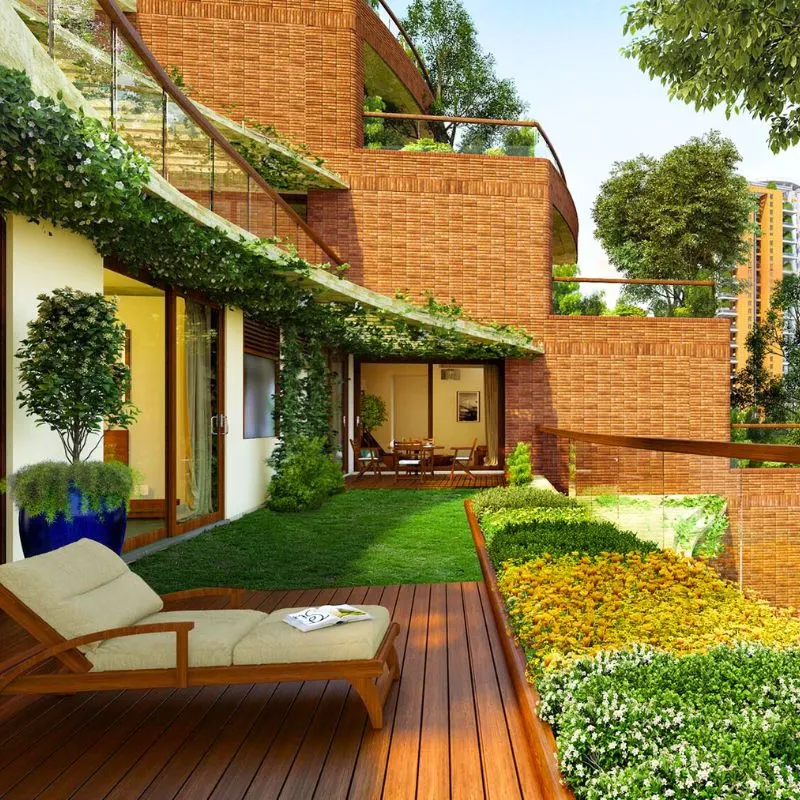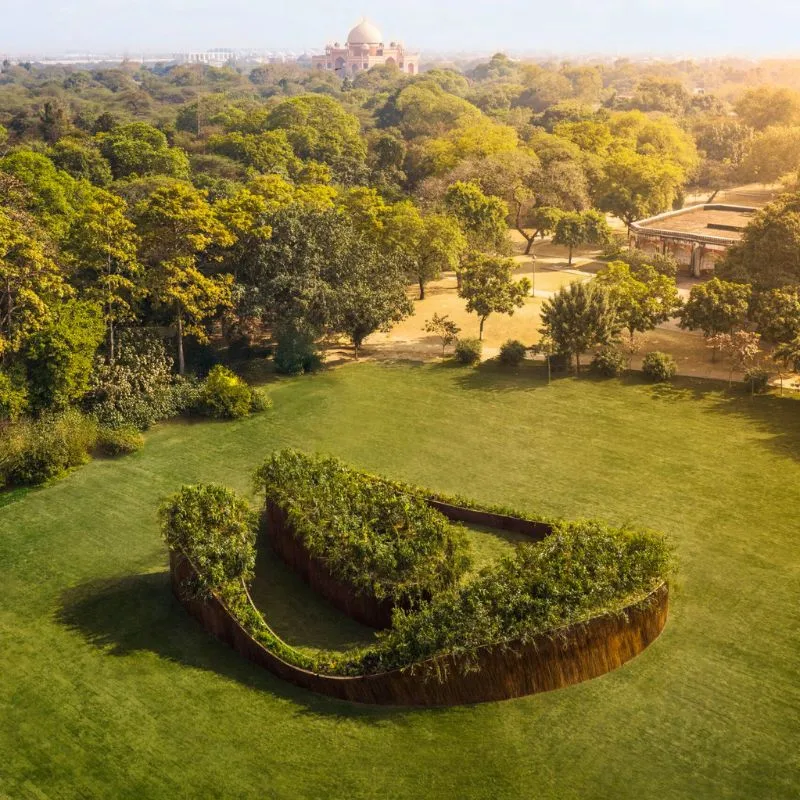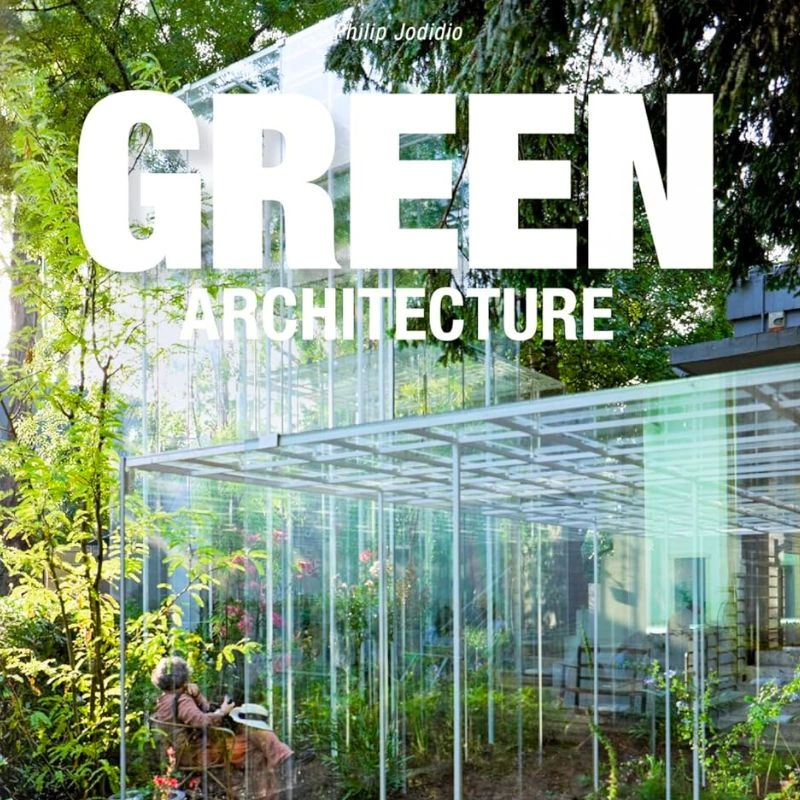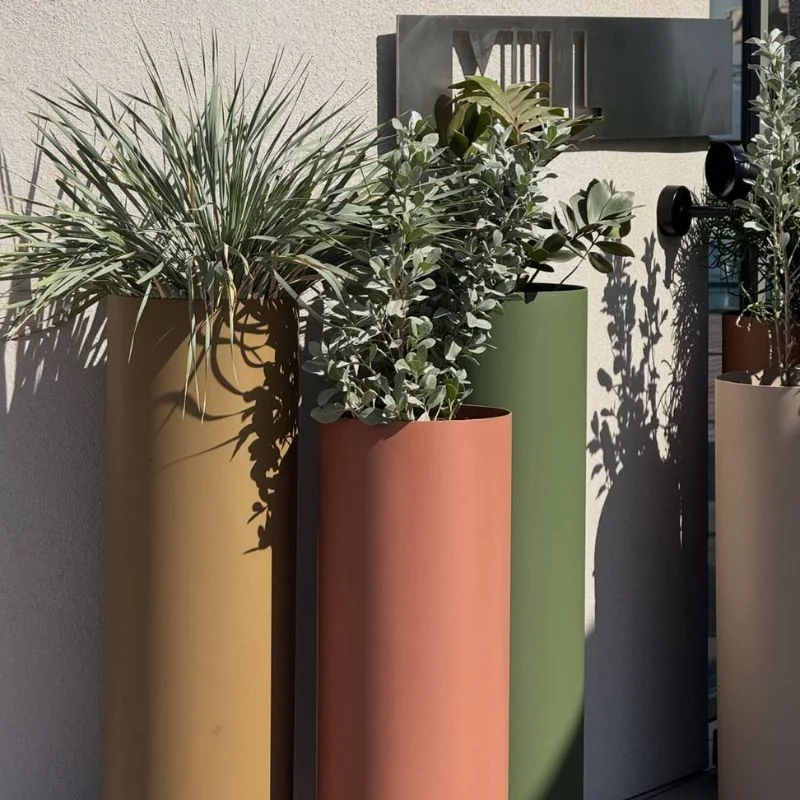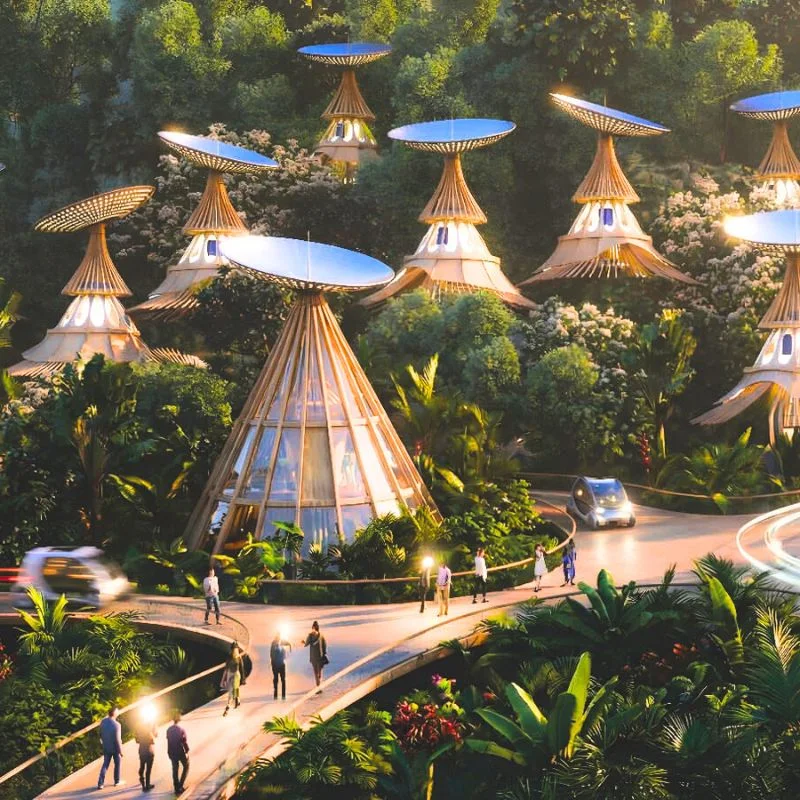The newly completed Expo Cultural Park Greenhouse by Delugan Meissl Associated Architects (DMAA) in Shanghai reflects the shifting global recognition of nature as a critical part of the human living environment. This latest project integrates the firm's extensive technical and cultural expertise in greenhouse design, presenting a new approach that prioritizes sustainability at every level.
Better City, Better Life - The Main Concept of Shanghai's Zero-Energy Greenhouse by DMAA
The Expo Cultural Park, located in Shanghai's Pudong neighborhood, which is well-known for its expanding skyline, is currently a sustainable urban solution amongst the city's rapid development and environmental stresses. Due to environmental issues such as excessive pollution, water scarcity, and warming temperatures, the monstrous city is pursuing ambitious, large-scale projects that will protect natural areas and advance China's sustainability strategy.
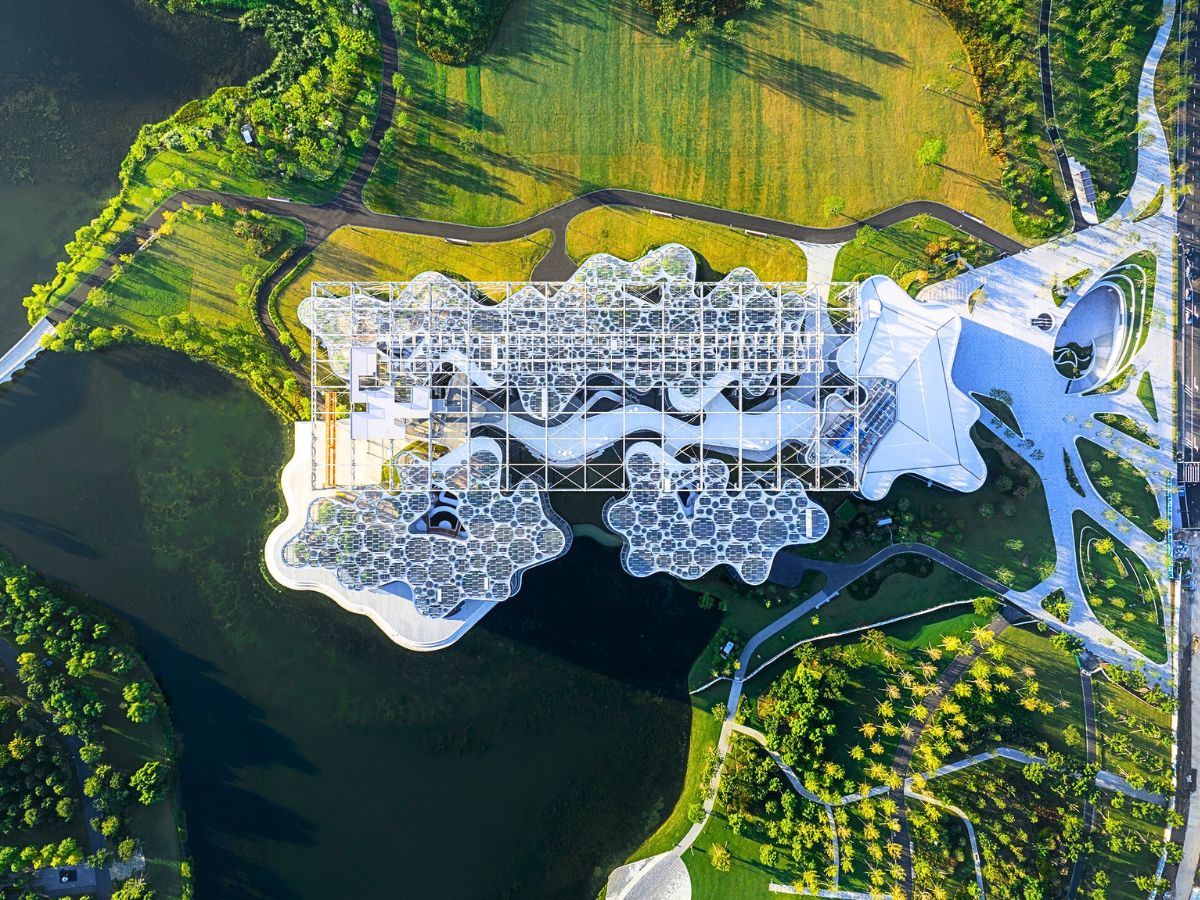
Part of Shanghai’s efforts is to integrate a new green lung to sustain diverse plant habitats while symbolizing a vision for breeding biodiversity and human-nature interaction in urban environments.
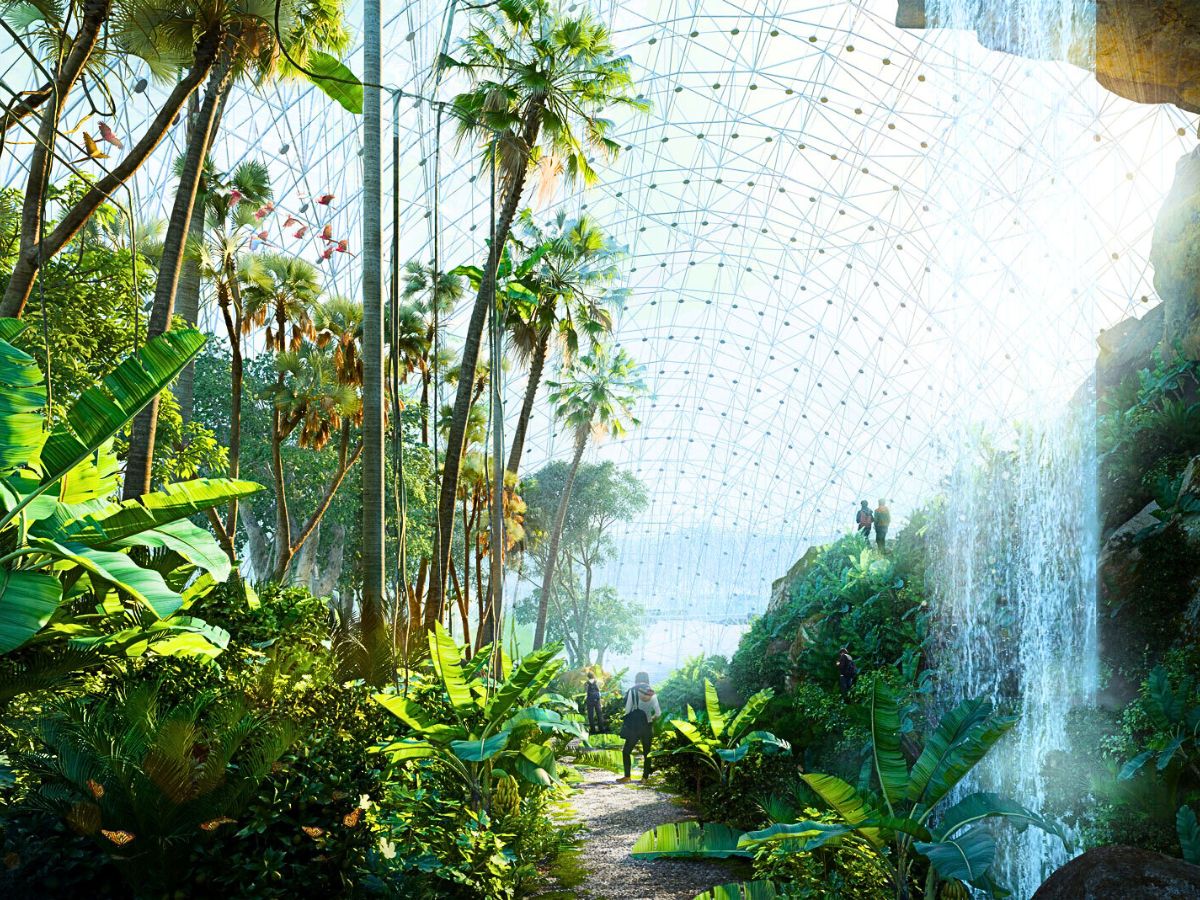
From an Industrial Site to a Green Park in Shanghai
The location of Expo Cultural Park was originally a steelworks and coal-fired power station. It was renovated for Expo 2010 and then transformed into a sizable green area and greenhouse in the heart of Shanghai by Delugan Meissl Associated Architects. An old industrial hall's steel structure is repurposed in the new concept, which incorporates naturally curved pavilions beneath it. This contrast between nature and industry, as well as between tradition and the future, exemplifies Shanghai's historical shift toward a more sustainable and green metropolitan center.
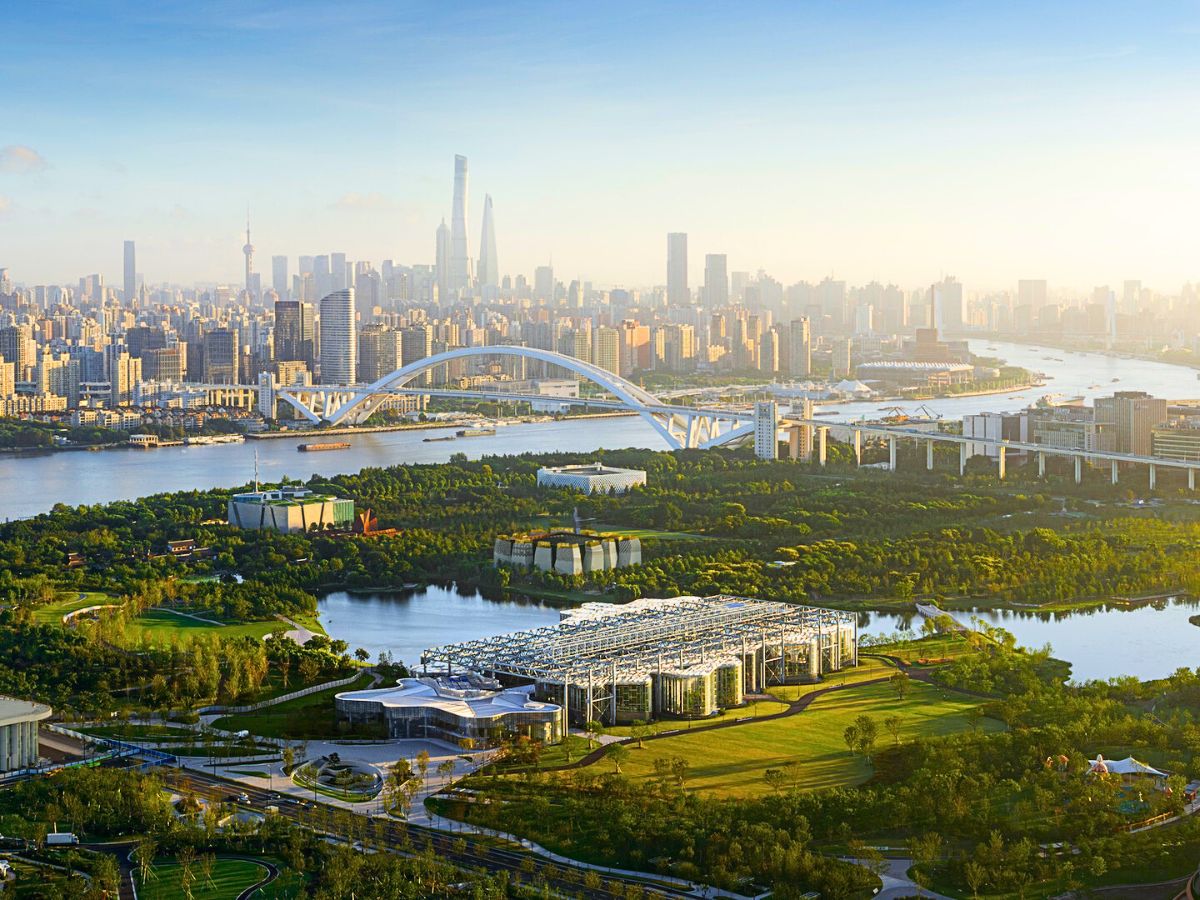
By designing a zero-energy building, the architects hope to combat the energy-intensive nature of traditional greenhouses. Because it minimizes heat loss without requiring artificial lighting, single glazing was selected for the construction based on simulations that indicated it would be more energy-efficient than double glazing. A naturally ventilated roof with movable apertures is part of the design, and a pool with built-in solar panels supplies the greenhouse with energy and cooling.
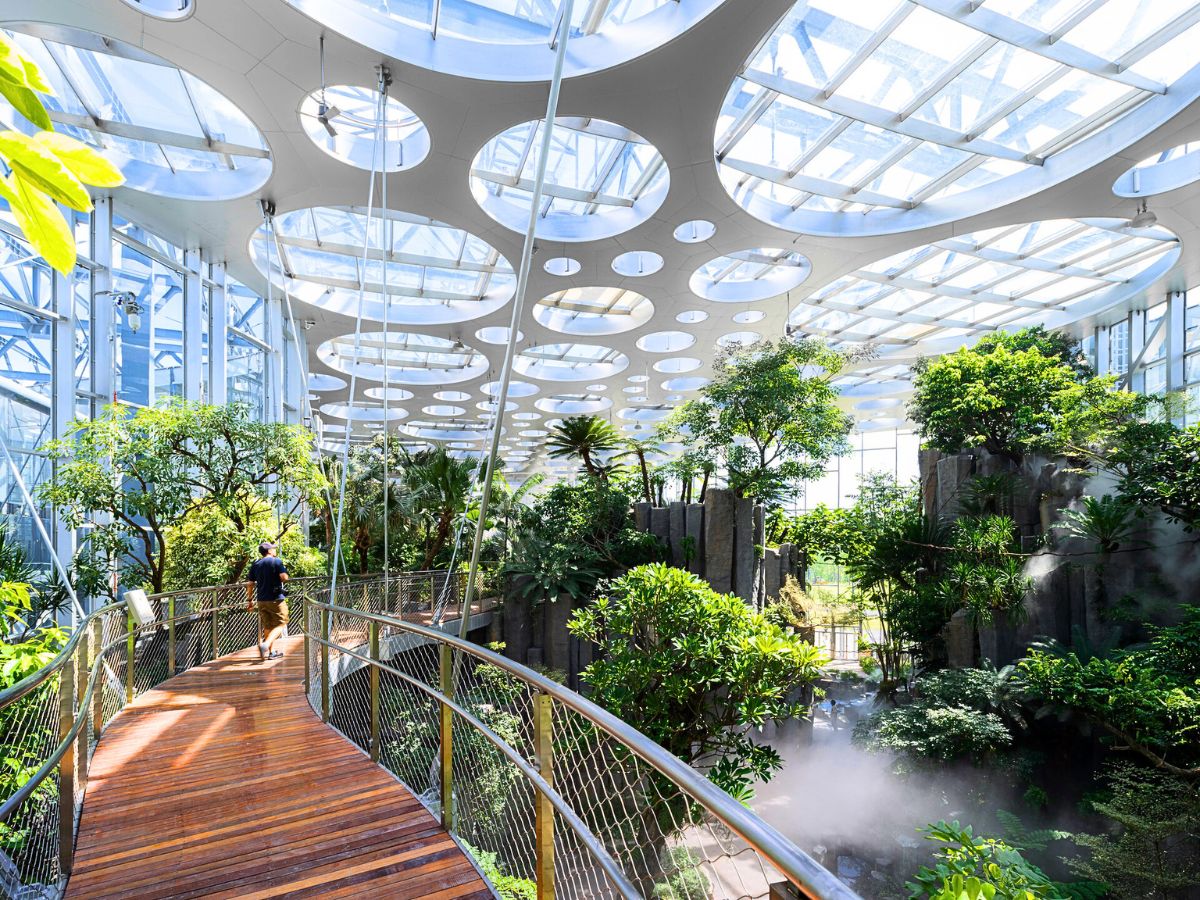
Diverse Biomes Within Pavillions
The result of the zero-energy greenhouse is a juxtaposition of a rigidly geometric frame and organically shaped glass pavilions. Yin and yang, as Diogo Teixeira, project lead of this stupendous work, describes it.
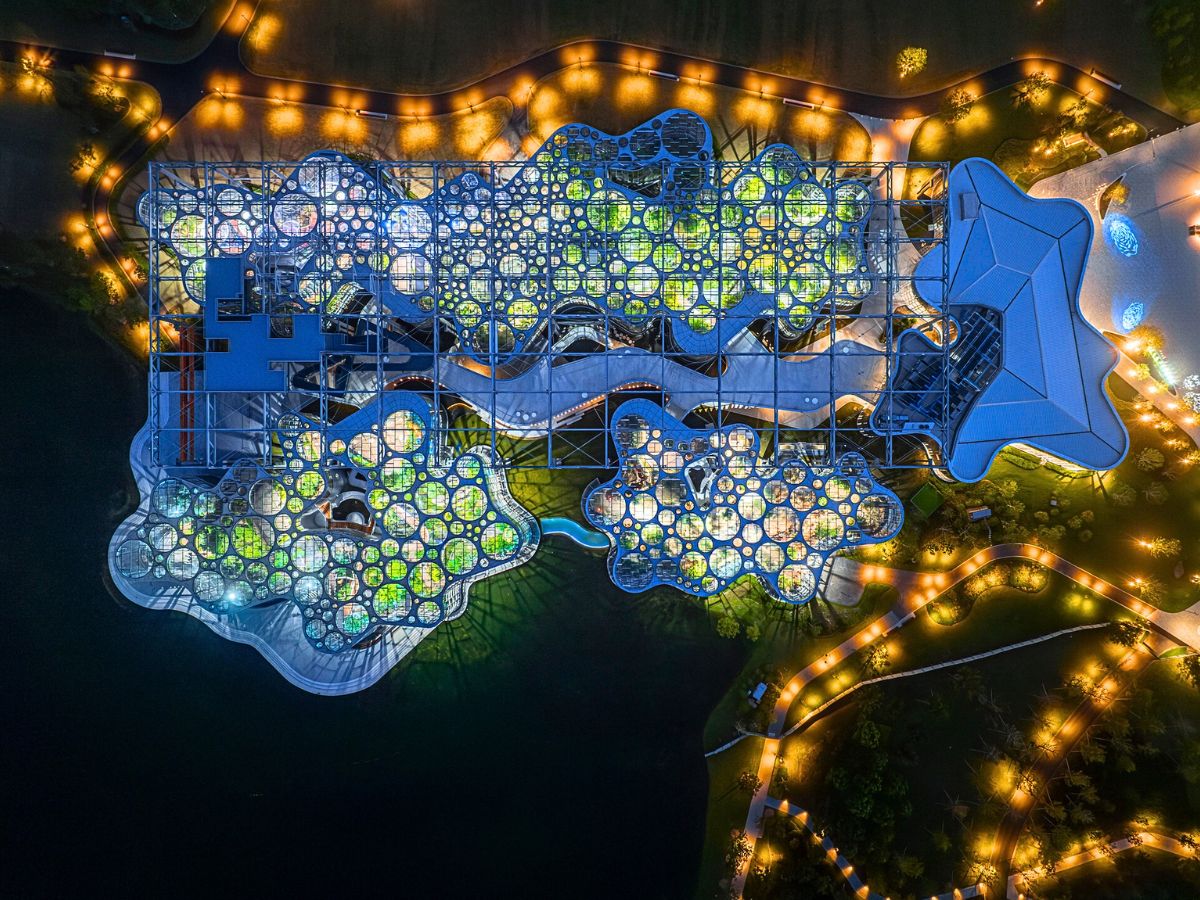
Shanghai’s newest greenhouse is organized into three distinct pavilions. The first pavilion replicates the arid environment of a desert, complete with sandy and rocky landscapes supporting drought-tolerant plants at risk of extinction. The second pavilion contrasts this with a tropical rainforest, while the third pavilion features vertical flower gardens and serves as a flexible space for traveling exhibitions. A terrace above these pavilions offers panoramic views of both the park and the surrounding urban landscape. The swamps, waterfalls, and tropical vegetation of the 'Natural Rainforest' exhibition or the digital caves, cascades, fruit trees, and flowers of the Cloud Garden Hall. Nature is everywhere!
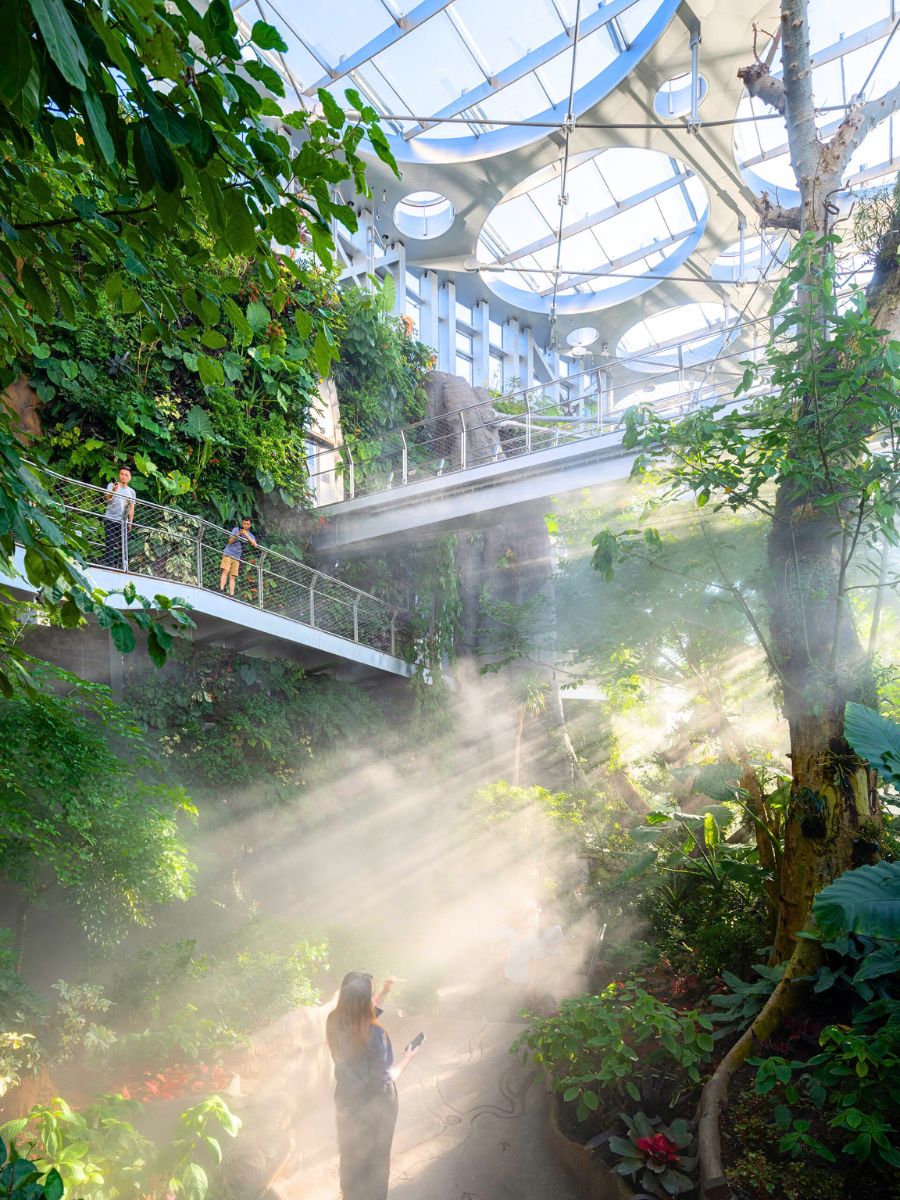
The design for the 'Plant Pavilion' creates a lightweight natural membrane from the exterior natural landscape to the greenhouse interior providing desired heat and humidity for rare and tropical species. Inside the dome big bodies of water and rocks are used for thermal storage, waterfalls for controlling humidity, and south-facing glass walls maximize solar exposure to consume as little of additional energy as possible.
A system of walkways both inside and outside the greenhouses allows guests to enjoy a thoughtfully planned flow across the area. Visitors' movement and pace are shaped by graded walkways and transparent parapets, which strengthens their bond with the diverse ecosystems. Water shortage, a major worry in the age of climate change, is brought to light by the water levels that fluctuate between desert and tropical regions, which are inspired by natural water cycles. The facade's flowing shape, which serves as both a project's visual and practical element, represents this flexible interaction between people and the natural world.
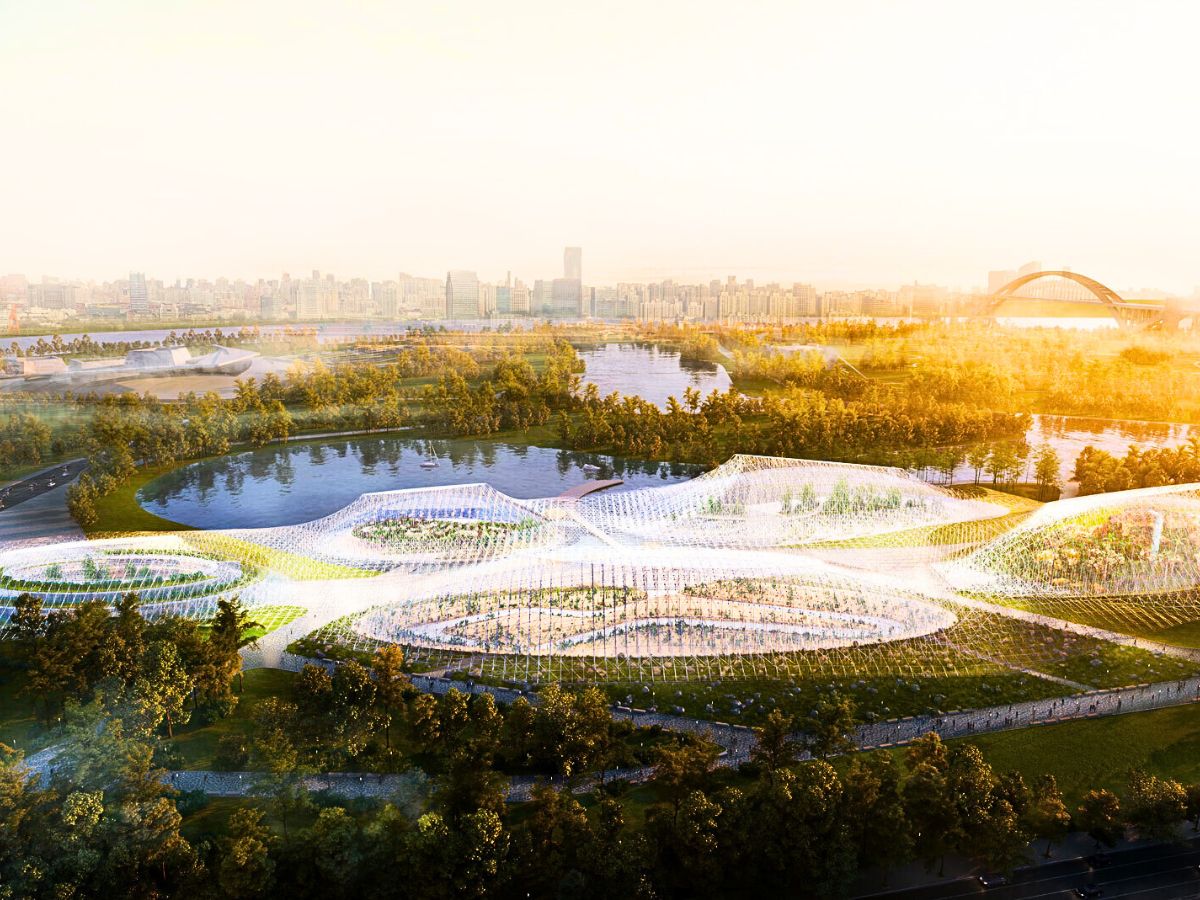
DMMA Wants to Bring Nature to Shanghai's Population
Bringing nature to the cities is the main objective, thus taking an important step towards promoting new synergies and a new lifestyle. Texeira shares:
"We’re facing climate change and the rise of endangered species of fauna and flora. This project is also a rehearsal for that, a way of raising awareness that people should take care of nature which still exists in different parts of the world. So far, daily visitor numbers are clocking in at around 20,000, providing a substantial audience for this message."
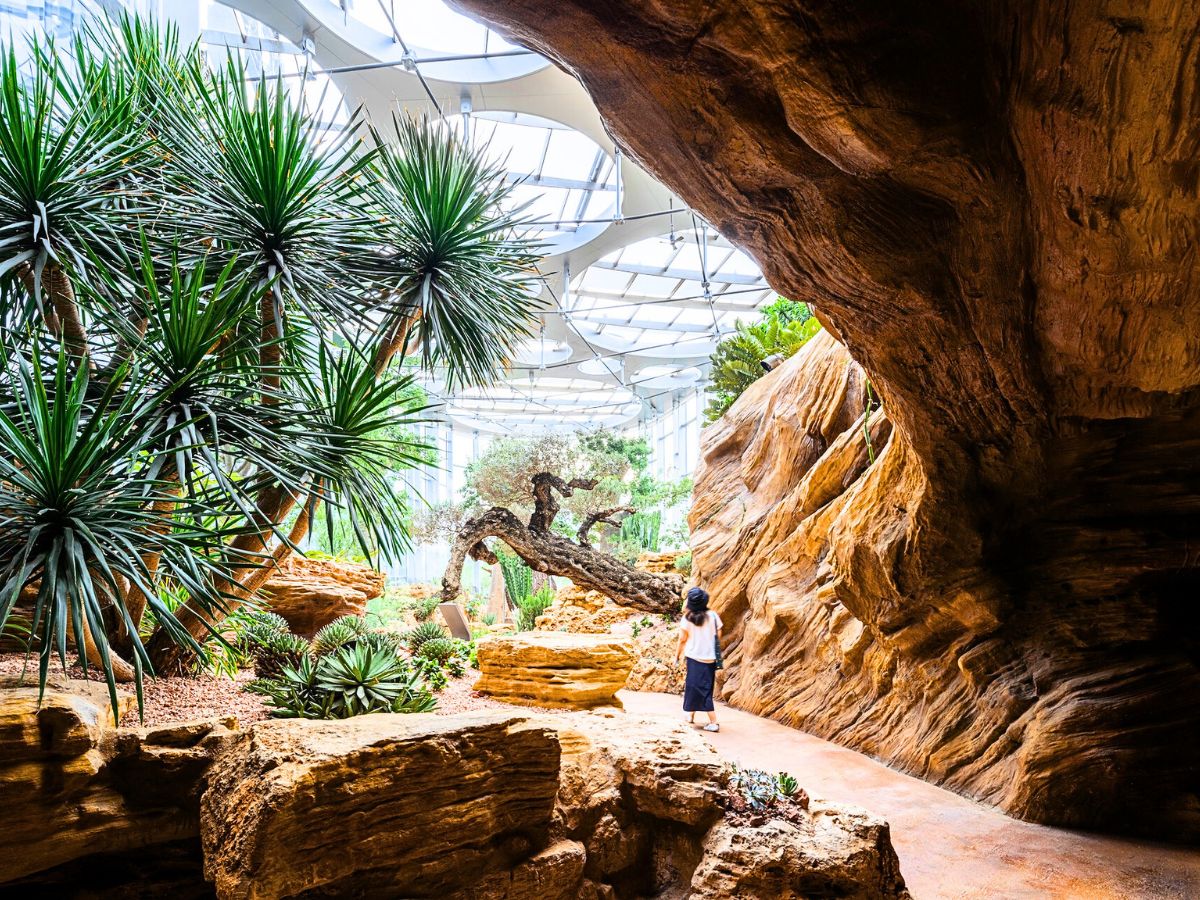
Photos by @creatarimages

